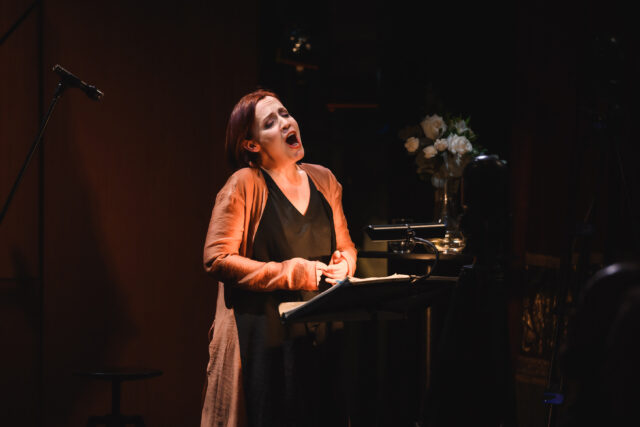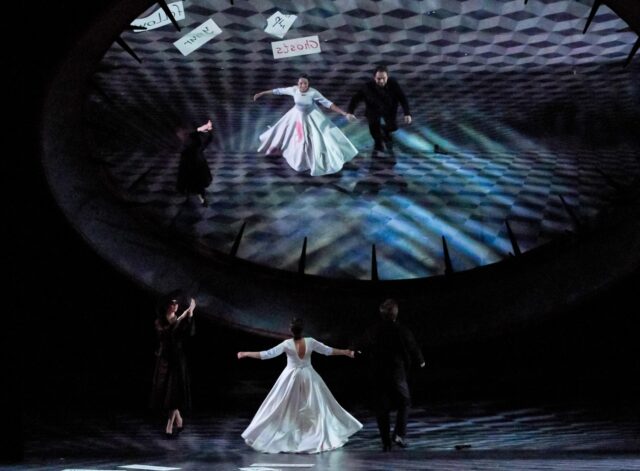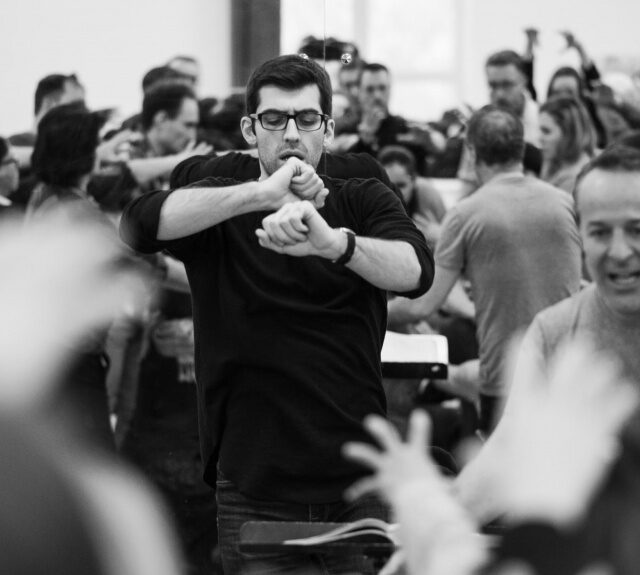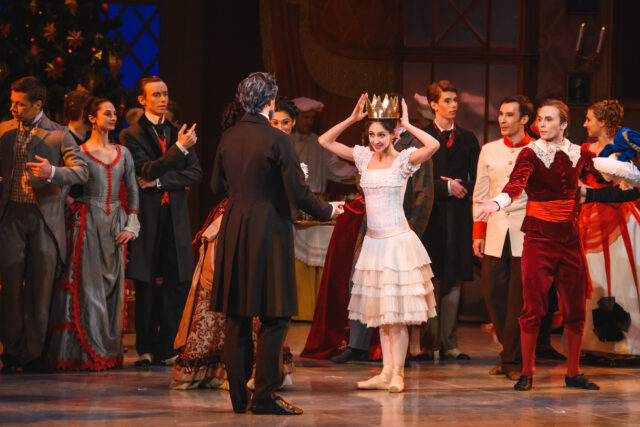The Perm opera keeps striving to prove that all positive reviews given to Teodor Currentzis and his artists by Russian and international critics are well-deserved. For several seasons they have claimed that for the first time in contemporary cultural history of Russia the centre of musical life has shifted from the capital to the provinces.
There had been a lot of heated discussions about a new production of the previous season, the world premiere of the opera Nosferatu by Dmitri Kourliandski, staged by Teodoros Tersopoulos and Jannis Kounellis, when the Perm Theatre again expressed their aspirations for leadership by opening the season with the premiere of Don Giovanni by Wolfgang Amadeus Mozart. The work of Valentina Carrasco, a member of the legendary Catalan theatre company «La Fura dels Baus», is hard to recognise as a notable landmark in the biography of the opera. The production is nothing more than just speculations about its characters being strapped into a rigid corset of social norms and petty bourgeois morality. The director’s poor articulation did not allow her to base the work on an essentially productive idea that freedom given by Don Giovanni was too heavy a burden for Mozart’s characters.
However, everything is relative. Given the sustained crisis of the Russian opera direction, Don Giovanni in Perm is not so bad. In the light of the last production of Mozart’s opera on the Moscow stage, an utterly helpless work of Alexander Titel for the Moscow Academic Music Theatre, you might even find some existential depth in Valentina Carrasco’s interpretation. However, it is easy to guess that for this we should thank Teodor Currentzis. Instead of overflowing theatrical abundance, which you might well expect from Don Giovanni, you see dull matt colours, pale flames and uneasy trepidation of restless lyricism. Nine years after the memorable concert performance of the opera at the Tchaikovsky Concert Hall in Moscow and four years after the premiere of Dmitri Tcherniakov’s production in the Bolshoi Theatre, the Greek conductor turns to Don Giovanni again and presents probably the most unexpected interpretation of the opera among all those that have been recently presented to the world. According to Currentzis, the score written in 1787 is permeated with a disturbing premonition of the restless epoch of Romanticism.
Together with Così Fan Tutte and Le Nozze di Figaro, Don Giovanni completes the trilogy of operas by Mozart and his librettist Lorenzo Da Ponte which has been performed in Perm within the last three years. Teodor Currentzis announced the project of staging the Mozart — Da Ponte trilogy at the very first press conference he gave as the Artistic Director of the Perm Opera and Ballet Theatre in winter 2011. Now, when this ambitious plan has been implemented, it is tempting to reflect on the results of work done by the Greek conductor in the Urals. For Currentzis Mozart’s triptych has become the same rite of initiation and symbol of moving into the major league as the series of «monographic» festivals dedicated to Mussorgsky and Prokofiev were for Valery Gergiev. This parallel to the biography of the Artistic Director of the Mariinsky Theatre is not at all accidental. Recently the typical route of seasonal migration of cultural tourists in Russia has finally changed. In the past, in order to open and close an opera season educated music lovers visited Saint Petersburg, and now on the eve of Currentzis’ premieres and concerts it is impossible to book a direct flight to Perm.
Nevertheless, the key peculiarity of the Ural Mozart — and the main attraction of the Perm opera — is that it is no longer a Russian, so to speak, domestic phenomenon, but an international one. It is unlikely that in Russia today there is another freely convertible musical brand which would provoke more interest in the West than this one. In view of the all-embracing crisis of the sound recording industry, which makes us see any studio recording of an opera, regardless of its advantages and disadvantages, as a heroic victory of true art over ruthless rules of the stagnating market, Sony Classical has decided to release the complete trilogy of Mozart and Da Ponte’s works. The recording is going to be made by Russian musicians, who, in addition to that, live in a city with a name rather unpronounceable for Europeans. However, Western music lovers and producers have learnt how to pronounce the toponym «Perm» very quickly. Last week it became known that Markus Hinterhäuser, who had recently been appointed as the Artistic Director of the Salzburg Festival, had offered Currentzis and musicians from Perm to take part in the most prestigious opera forum in the world. They are performing Mozart’s La Clemenza di Tito in Salzburg in 2017.
So far, the only Russian orchestra that had been invited to Salzburg was the orchestra of the Mariinsky Theatre. It is worth noting that in the homeland of the author of Don Giovanni they mainly performed the national repertoire. Today’s international triumph of the Ural Mozart is one of the most glorious victories of the Russian performance school in the course of its existence. The project of a conservatoire in Perm, put forward to the regional government, was not supported by the officials. Nevertheless, the Perm Opera and Ballet Theatre keeps providing the Russian stage with new artists: every premiere reveals a potential superstar. Don Giovanni is no exception. We will probably hear the soprano of Nadezhda Pavlova, discovered by Currentzis, more than once in the nearest future. Not long ago, if somebody asked what the musical capital of Russia was, the answer was quite unequivocal: at the turn of the 1990s and the 2000s it was the Mariinsky Theatre under the baton of Valery Gergiev, in the middle of the last decade it was the Bolshoi Theatre adhering to the modernist repertoire. This year it is hardly possible to disprove the fact, officially supported by the Golden Mask awards and other prestigious prizes: Teodor Currentzis’ activity has made Perm a «place of power» for opera in the 2010s.





